Home » Farm Animals » What Can Horses Really Eat? A Quick Guide to Safe Treats
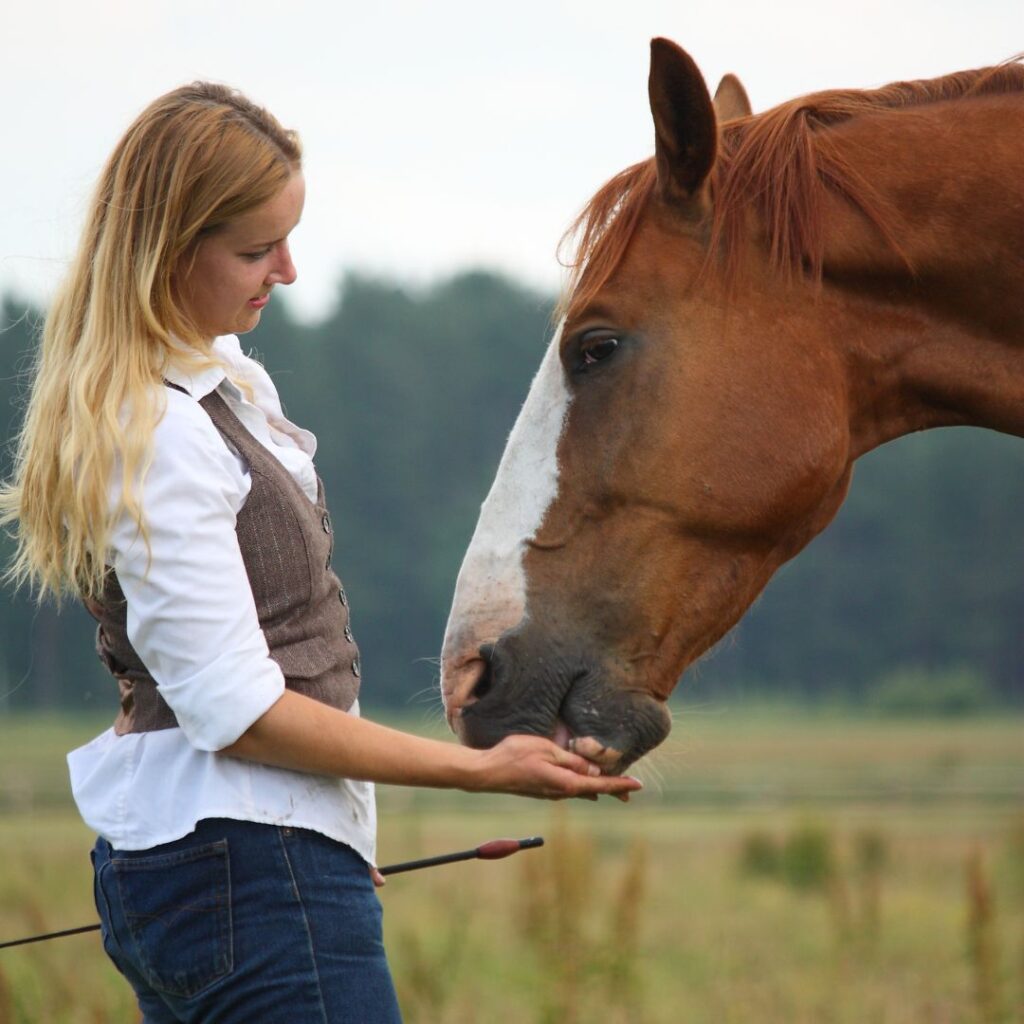
We all love to give our horses treats, but not every food may be good for their health. In this article, we are going to answer some of your questions about what things your horse can eat and what to avoid.
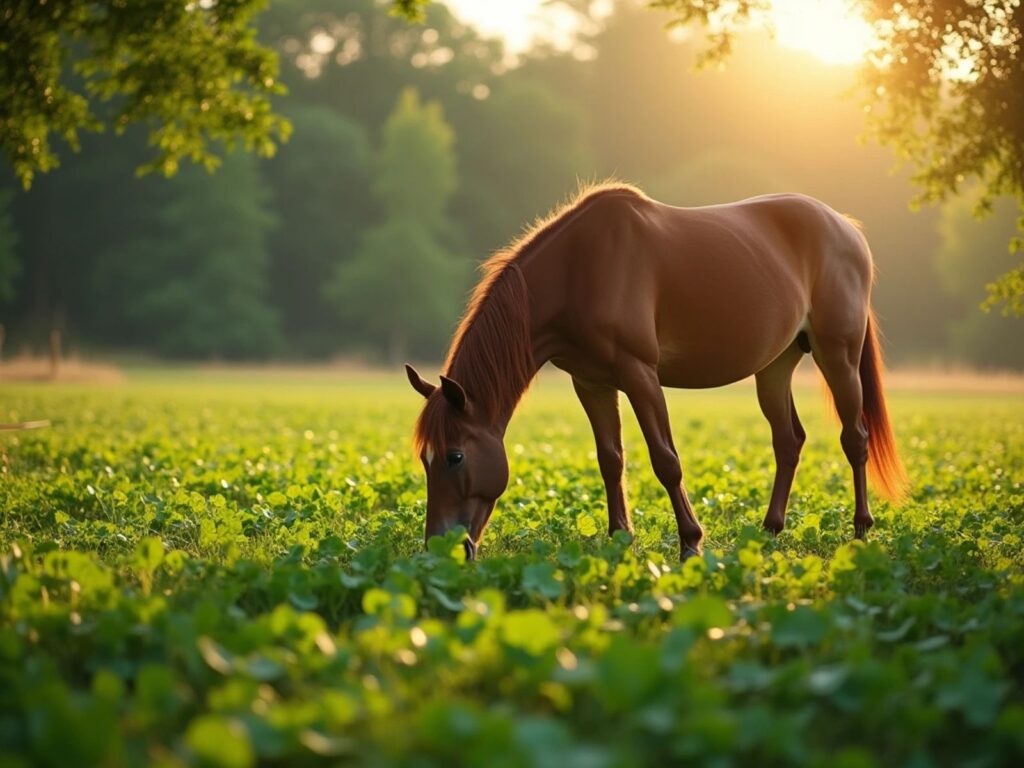
Clover is actually a natural part of horse pastures. Fresh clover is safe, though wet clover can cause slobbers (excessive salivation). No need to panic if your horse grazes in a clover-spotted field.
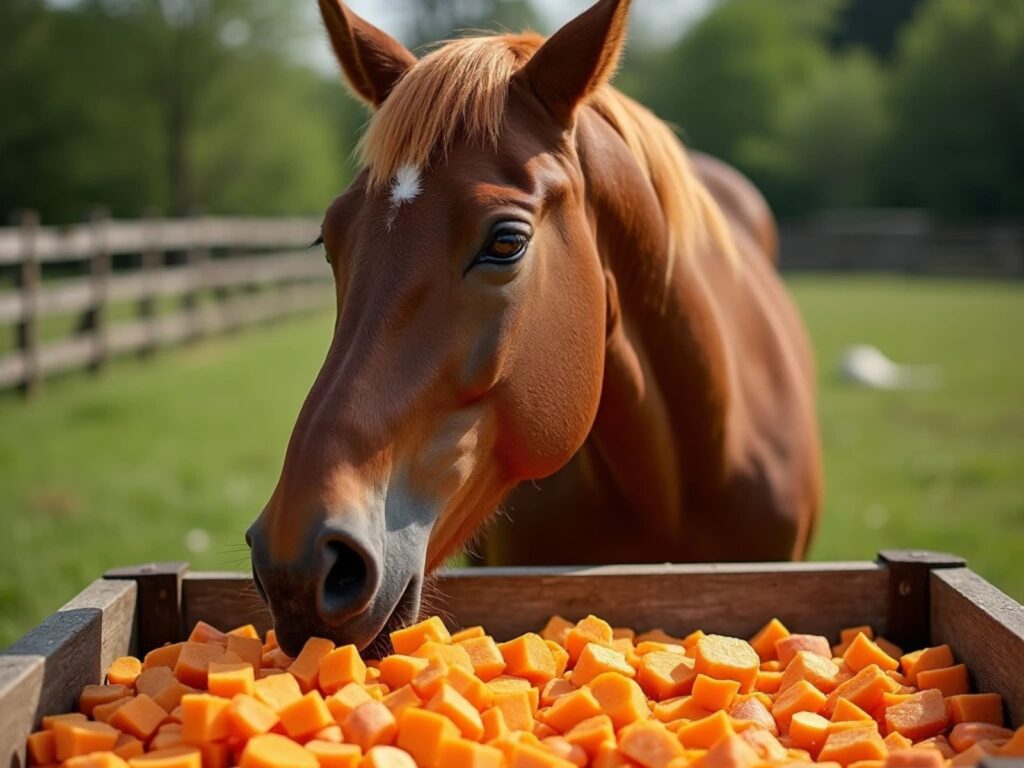
Yes! Sweet potatoes are a nutritional goldmine! Rich in potassium, fiber, and vitamins A and C. It will help your horse’s immune system, vision, and be a good source of energy.
But like all treats, it’s important not to give too much as it may lead to some digestive issues. Cut them into small pieces and always make sure they’re fresh and mold-free.
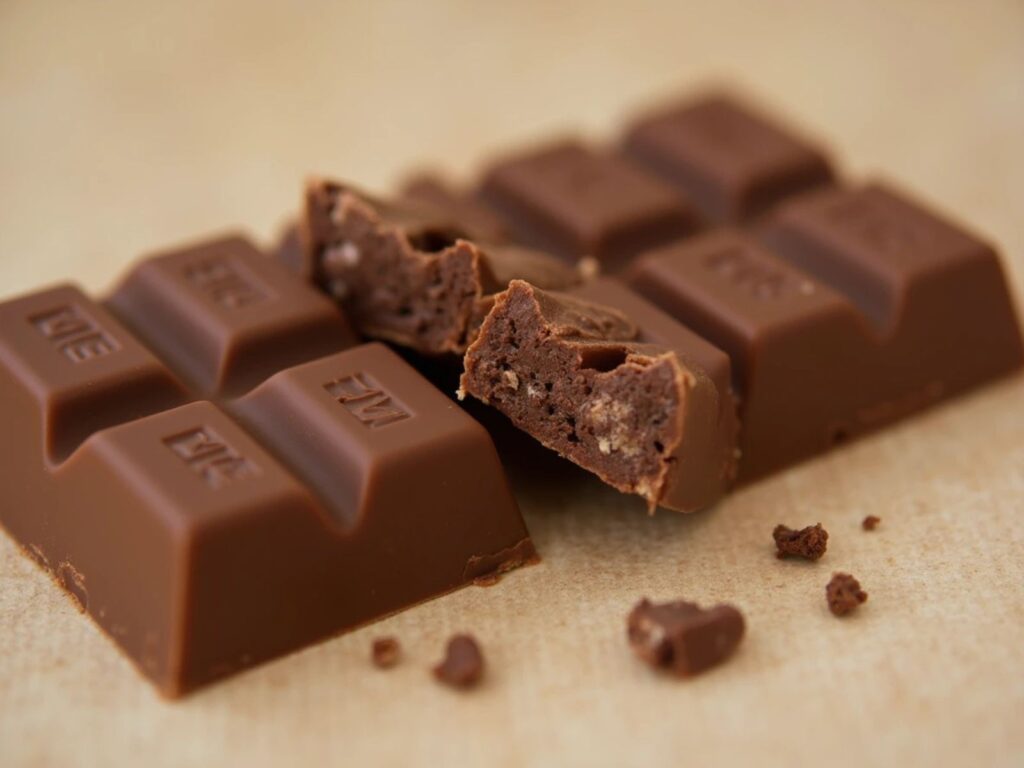
Absolutely not! Just like dogs, horses should never eat chocolate. The theobromine content can be toxic. Even small amounts can cause big problems like colic, seizures, or even worse.
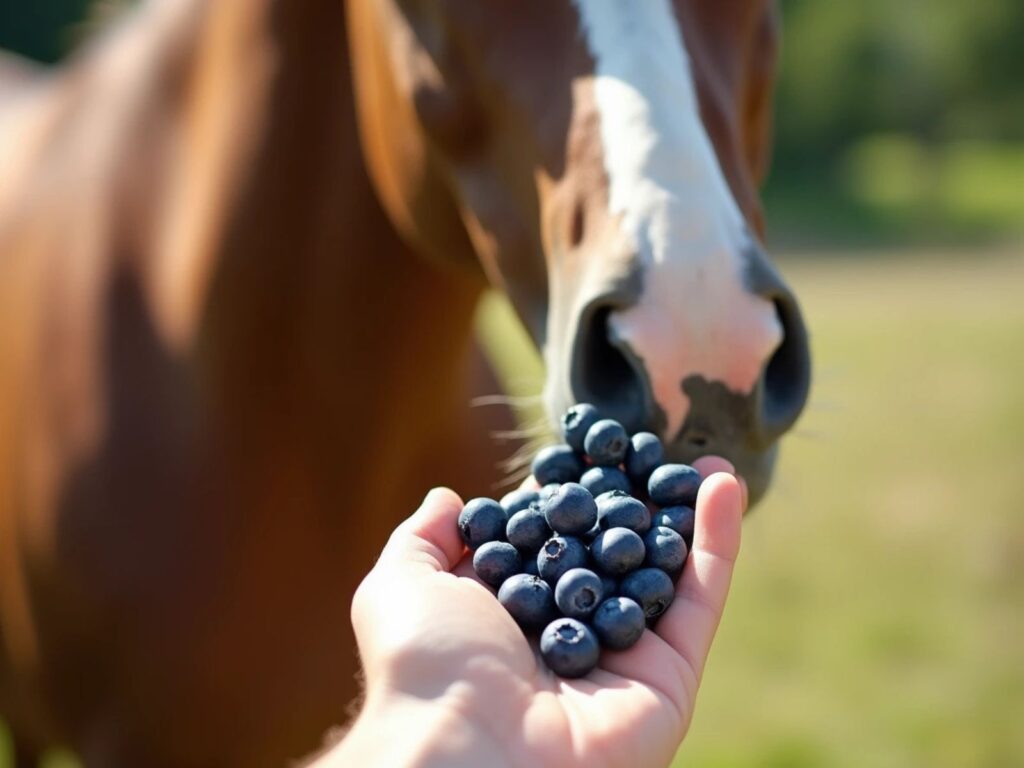
Blueberries are a powerhouse treat for horses. They are full of vitamins and antioxidants. Just make sure you don’t give them too many as they can hurt their stomach. It’s fine to have a handful here and there.
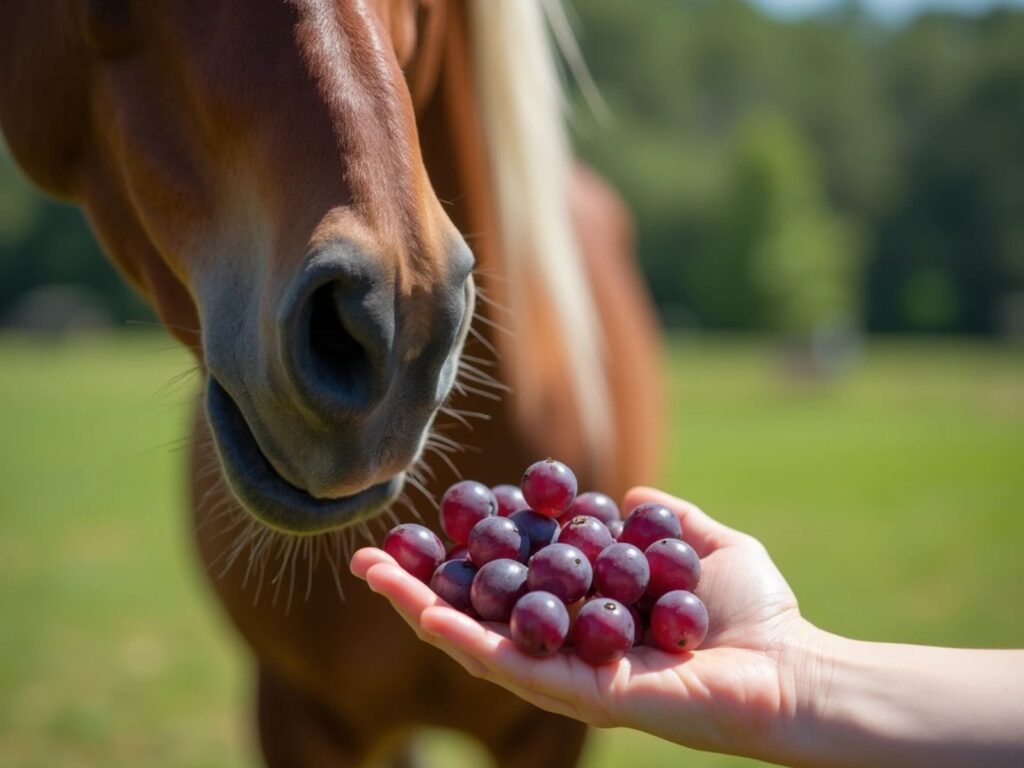
Yes, but in moderation. Remove seeds first, and offer just 5-6 at a time. Think of them as horse candies (sugar) – delicious but best kept as an occasional treat: balance is key.
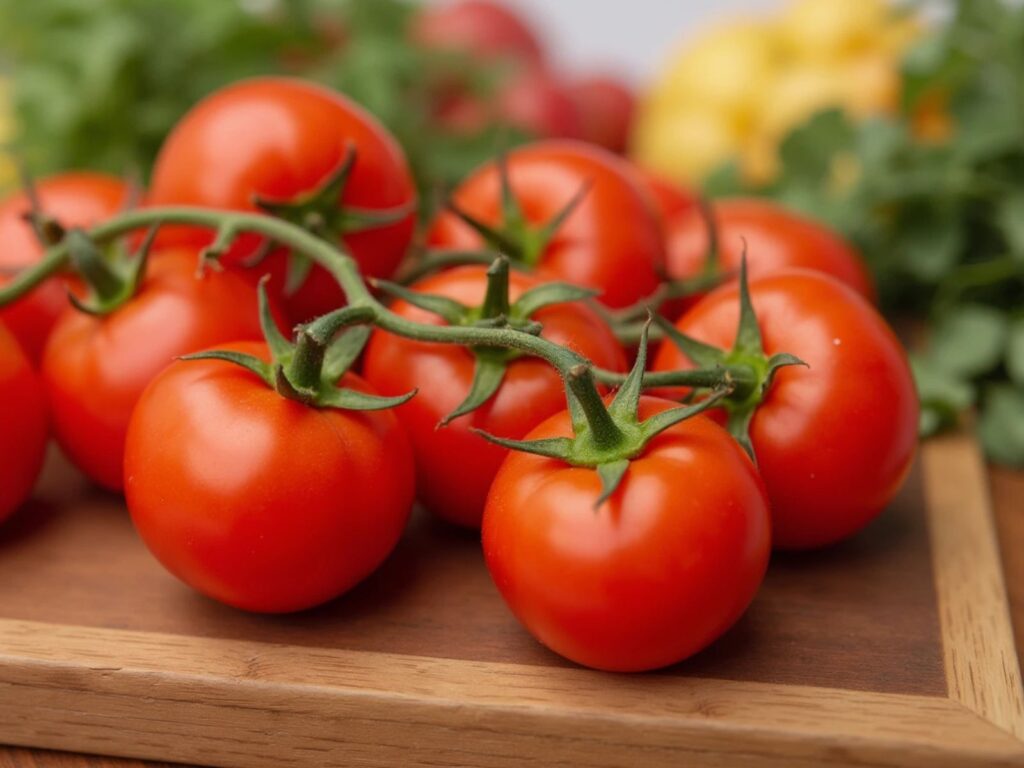
A big NO. The leaves and plant parts contain solanine, which is toxic to horses. It can lead to severe gastrointestinal problems, colic… And that goes for any part from leaves to stems.
Keep those garden tomatoes for your own salad.
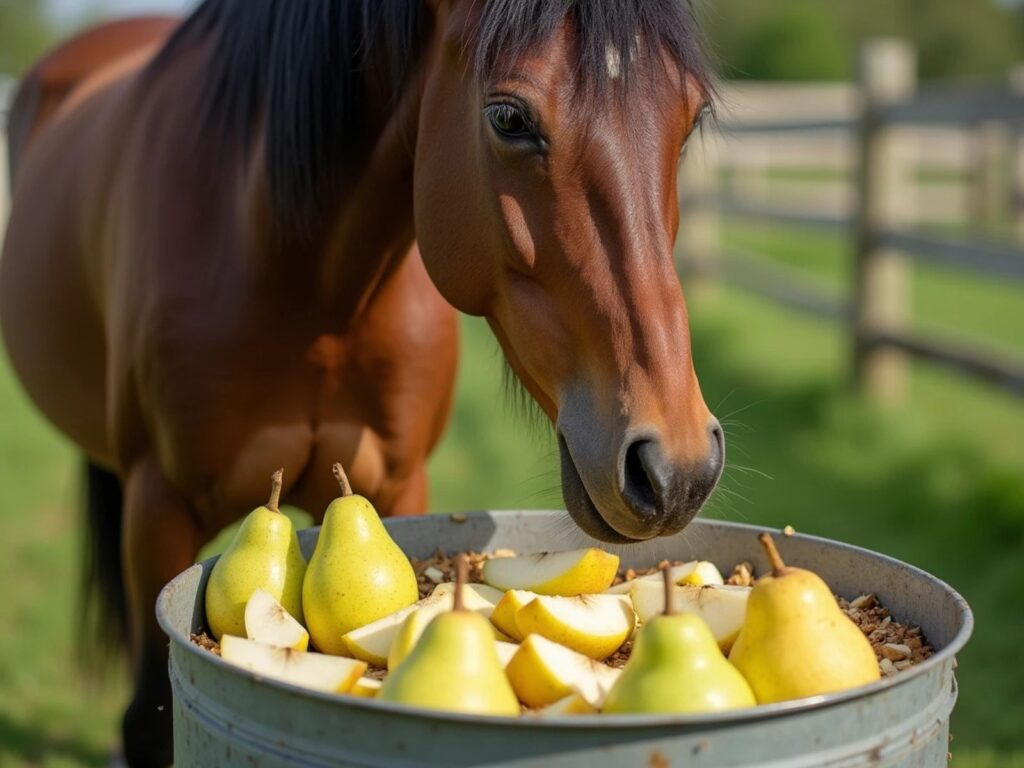
Pears make excellent horse treats. Their crisp texture and natural sweetness make them a favorite. But like any fruit, keep it always in small amounts as it contains sugar.
Quarter them to prevent choking, and remember to remove the seeds.
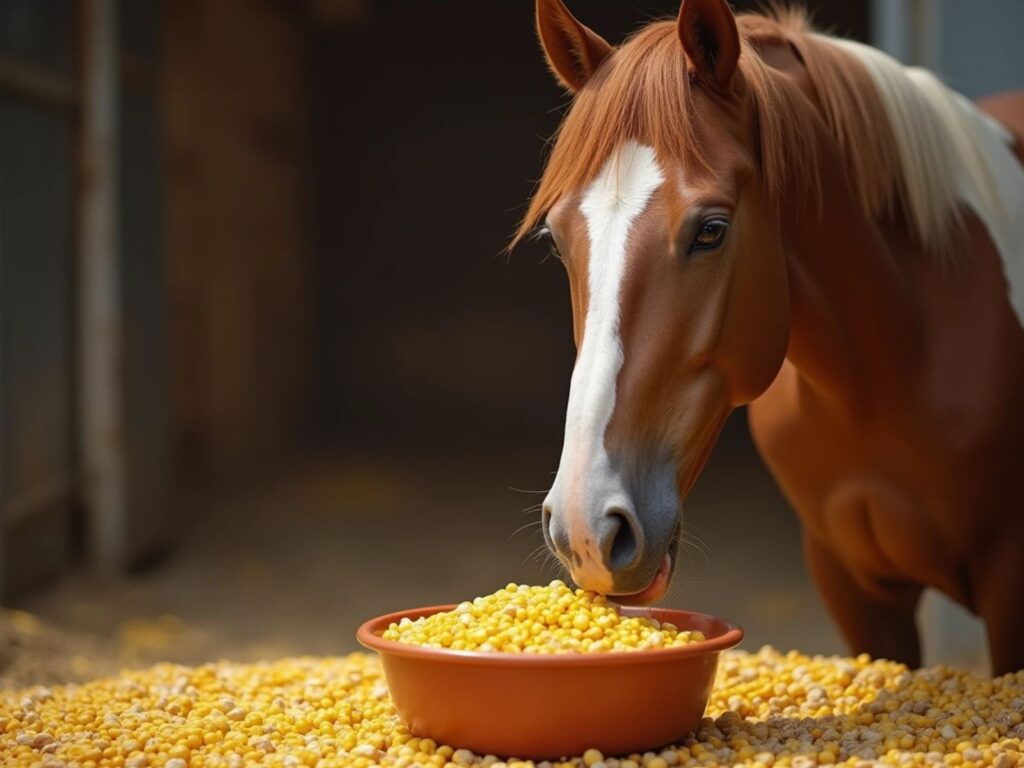
Corn can be a tricky one. While it’s generally safe, giving whole corn can be risky. Horses love it, but it’s high in sugar and starch. Think of it as horse junk food – fine occasionally but not as a dietary staple.
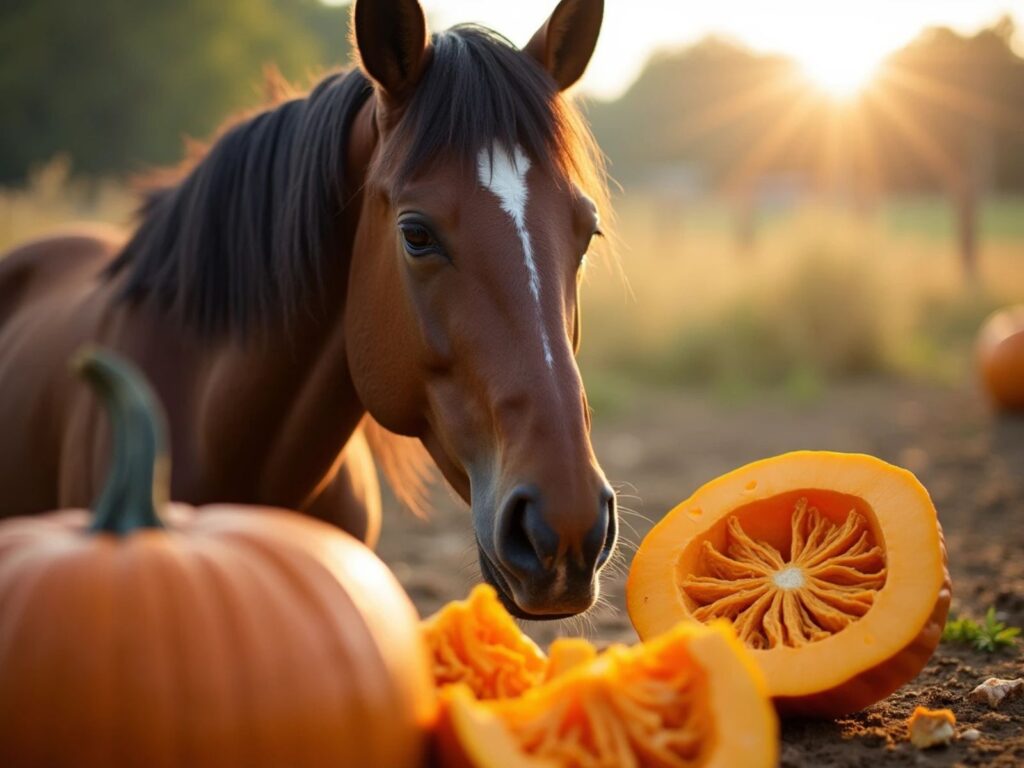
Pumpkin is perfectly safe and especially wonderful in fall. Many horses go crazy for pumpkin flesh, plus it’s full of fiber. Be sure to remove the seeds and avoid feeding moldy Halloween leftovers!
Remember: Start small with any new treat, and watch for positive or negative reactions. The joy of sharing a healthy treat with your horse is unmatched. Their soft muzzles and grateful nickers make treat time special for both horse and human.
Just keep it safe, keep it moderate, and enjoy the bonding experience! Have you discovered your horse’s favorite treat?
Share your experiences – every horse owner loves a good treat-testing story!
Sign up for our newsletter and receive the next story before it is lunched
Our blog is made with love to give you advice on how to take care of your beloved pets and to help you learn everything about their stories